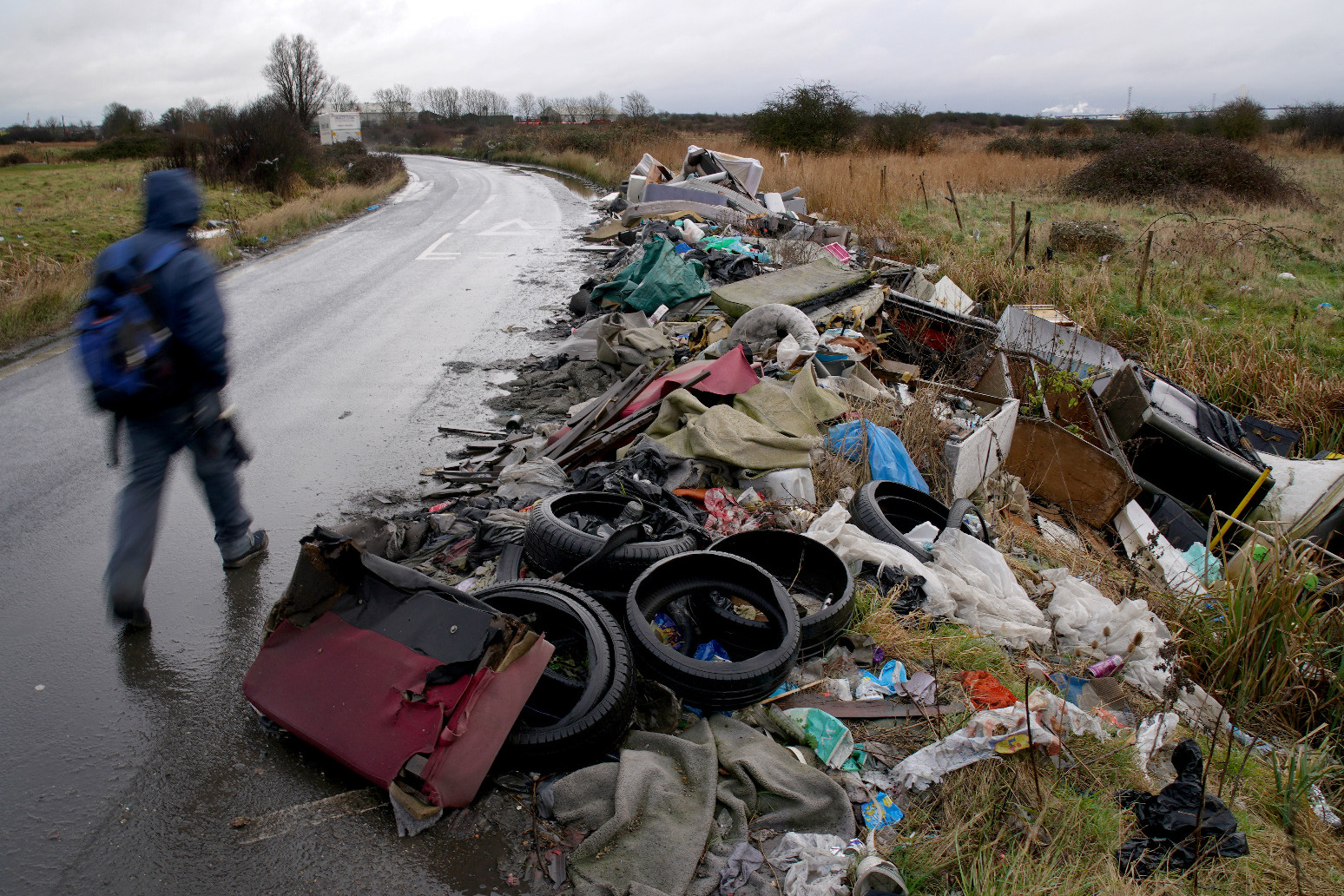
Government losing battle against crime gangs behind fly tipping
That's according to the National Audit Office
The Government is fighting a losing battle against the crime gangs behind fly tipping, a new report suggests.
There has been a steady rise in organised, large-scale waste crime in England in recent years as incentives for criminals have increased, the National Audit Office (NAO) said after an investigation.
A hike in landfill tax has seen a huge fall in waste sent to landfill but has also boosted the money criminals can make from illegal actions that evade the tax, such as fly tipping, the misdescription of waste, and illegal waste sites.
The report also found that the number of reported fly-tipping incidents, most of which involve small van-loads of household waste dumped on highways, has soared over the past decade, reaching more than 1.13 million in 2020/21 – costing local authorities £11.6 million to clear up.
However, prosecutions more than halved between 2019/20 and 2020/21, while the number of fixed penalty notices issued fell by 24%.
Efforts by the Department for Environment, Food and Rural Affairs (Defra) and the Environment Agency to tackle waste crime are hampered by their lack of data to assess the full scale of the problem, according to the NAO.
There are particular gaps in their understanding of how much hazardous rubbish is illegally exported and causing serious harm to the environment and human health in the countries it is sent to.
The report also said that while the Environment Agency receives dedicated government funding to combat the issue, many other organisations involved in the fight do not and have instead seen their budgets slashed.
In response to the investigation, Meg Hillier MP, chairwoman of the Public Accounts Committee, said: “Waste crime is not a victimless crime. Aside from being unsightly and polluting, it costs the economy almost £1 billion a year. Yet this may be just the tip of the iceberg.
“Waste crime is increasingly dominated by organised criminal gangs, but the Environment Agency is fighting a losing battle. With only £17 million a year to spend on enforcement, it is seen as toothless to tackle the law-breaking and to bring criminals to book”.
The number of times the Environment Agency has prosecuted organisations for waste crimes has fallen from a 2007/08 peak of almost 800 to around 50 per year since 2017, the NAO reported.
The agency’s most common sanctions are issuing advice and sending warning letters.
Labour’s shadow secretary of state for the environment, food and rural affairs, Jim McMahon, said: “This is a damning indictment of the Government’s negligence in tackling waste crime in England, letting criminals off the hook and leaving a financial and environmental burden on our country”.
The Liberal Democrats accused the Government of effectively “legalising littering” and called for higher court fines that would go towards a fund to crack down on criminals.
Lib Dem home affairs spokesman Alistair Carmichael MP said: “It is infuriating that while the vast majority of people play by the rules, law-breakers are cashing in on this disgusting practice and getting away scot-free.
“Conservative ministers have effectively legalised littering by turning a blind eye to this fly-tipping epidemic. The buck stops with them and their failure to tackle this.”
Resources and Waste Minister Jo Churchill insisted Defra is cracking down on waste crime.
“We are reforming the licencing system, introducing mandatory digital waste tracking, investing to tackle fly tipping, and supporting people to do the right thing by disposing of their waste correctly,” she said.
The Environment Agency said earlier this month that it has created an “intelligence-led, collaborative and high-tech” strategy focused on combating the worst criminals.
While the agency reported a drop in the number of illegal waste sites in recent years, it acknowledged that coronavirus lockdowns meant its officers were less able to track them down.
NAO chief Gareth Davies said: “Defra and the Environment Agency agree that their data significantly understates the scale of some types of waste crime. The evidence available shows that waste crime is increasing, and organised criminals are becoming more involved.
“Government needs to target resources effectively and understand what progress it is making towards its aim of eliminating waste crime by 2043.”
Published: by Radio NewsHub